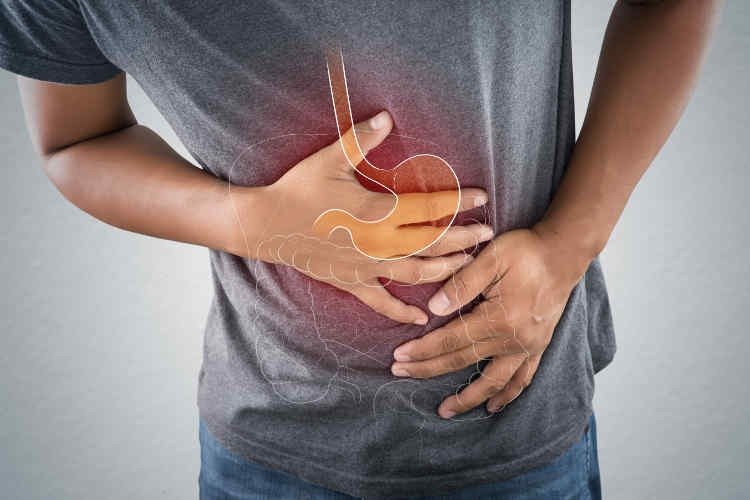Recognising the Link Between Erectile Dysfunction and Crohn’s Disease
Men living with Crohn’s Disease can face unique symptoms and risks because of the anatomy of their male reproductive organs. One of those issues includes ed.
Researchers found that ED was highly prevalent in patients with newly diagnosed UC, according to a prospective incidence cohort study. Eugenia Shmidt, MD, and her team examined 69 patients with IBD who completed IIEF questionnaires.
Inflammatory Bowel Disease (IBD)
IBD is an umbrella term for disorders that cause inflammation of your digestive tract. It’s not clear what causes IBD, but it’s probably a combination of genetics and something in your environment. Diet and stress may make symptoms worse, but they don’t cause the disease. IBD tends to run in families, and it can happen at any age. It’s more likely to develop in kids and teens.
The first symptoms of IBD are usually diarrhea and abdominal pain. You may also have blood in your stool, or have a fever. You may have times when your symptoms get worse (flare-ups) and then go away (remission). People with IBD can have other health problems, including rashes, eye problems, joint pain and arthritis, and liver problems. It can also affect your fertility and increase the risk of colon cancer.
If you have IBD, you might not be able to eat the foods you love. You may need to follow a special diet to keep your symptoms in check. You might also need to take medicines to help with digestion or prevent flare-ups. It’s important to take your medicine as prescribed, even if you feel better. Most people with IBD will need to take medications indefinitely. Some people with IBD need surgery to fix a problem in their intestines or abdomen, like a perforation, fistula, or colon resection. If you want to have sex then you can take Fildena Super Active medicine.
To diagnose IBD, doctors use a combination of blood tests and stool (poop) tests to look for inflammation and other signs of the condition. They might also do a procedure called an endoscopy or a colonoscopy, which involves inserting a tube with a camera into your digestive tract. They might also do imaging tests, like MRI or CT, to see how the tissues in your digestive tract are doing. Then, they might do a biopsy of your bowel tissue to check for the condition or look for complications. These procedures can be painful, but they can improve your quality of life and reduce the risk of serious health problems.
High Blood Pressure
ED can cause stress, affect your self-esteem and contribute to relationship problems. It may also be a sign that an underlying health condition needs treatment. If you have trouble getting or keeping an erection, talk to your doctor, even if you’re embarrassed. Often, treating the cause of ED is enough to solve the problem.
Crohn’s disease can thicken the walls of your intestines and narrow the passage through your colon. Over time, this can block your bowels and lead to serious complications. One of the most common problems is a partial or full intestinal obstruction, which means you can’t pass food or stool through your colon. This can be life-threatening.
Surgery can help treat some types of bowel obstruction. During an intestinal resection, doctors remove the affected part of your colon and close any fistulas. This can help prevent infections and reduce abdominal pain. In some cases, doctors can use laparoscopic surgery to remove a small section of your colon. This is safer and has fewer side effects.
Having a flare-up of Crohn’s disease while you’re pregnant or breastfeeding can raise your risk of complications for both you and your baby. Depending on your situation, your doctor might recommend waiting until your Crohn’s is under control before you try to get pregnant.
Crohn’s can increase your chances of getting blood clots in the lungs, which can be deadly. This can happen when your blood gets clogged by plaque or breaks off and forms a clot in a vein. People with Crohn’s have a higher chance of having hardened arteries and are more likely to develop clots in their lungs than people who don’t have the disease.
Research suggests that genetics and lifestyle factors both play a role in developing Crohn’s. People who are very overweight or who smoke have a higher risk of Crohn’s disease, as do people who are ethnically Jewish (Ashkenazi) or of Eastern European descent. If you have these traits, you should make healthy lifestyle choices and see your doctor regularly to check for signs of Crohn’s. Your doctor can also recommend medicines to treat your Crohn’s and lower your risk of heart disease.
Depression
Depression can be a serious mood disorder, and it can make coping with Crohn’s feel even more challenging. It can leave people feeling exhausted, worthless, helpless, and hopeless. Depression can be treated with psychotherapy, antidepressant medication, and other treatments.
Crohn’s disease causes many changes to a person’s body, and these can make some people more susceptible to mental health problems. According to the Crohn’s & Colitis Foundation, “It is not uncommon for a person with IBD to experience depression or anxiety along with their digestive symptoms.” People who have perianal Crohn’s are at higher risk for depression and anxiety than those who don’t. The same is true for those who have had surgery for their Crohn’s, or those who use a colostomy bag.
Stress can be a major contributor to depression and anxiety. In people with Crohn’s, stress can exacerbate the abdominal pain and diarrhea caused by their Crohn’s. It can also trigger a flare-up of their symptoms and lead to other issues like headaches and trouble sleeping. Trying to be more prepared, for example by carrying a pack of wipes in your purse or knowing where bathroom facilities are located when traveling, can help lower the risk of stress-related symptoms.
If you’re experiencing depression and/or anxiety, it is important to talk with your gastroenterologist or a psychologist or psychiatrist. Treatment options can include psychiatric medications, cognitive behavioral therapy (CBT), and mindfulness-based interventions. CBT is a type of talk therapy that can teach you how to change negative thoughts and emotions so that you can manage your symptoms better.
It’s also important to remember that ed isn’t always caused by depression. It can be a sign of an underlying health condition that needs treatment, or it could be a result of other mental health conditions such as anxiety or stress. If you have ed it’s important to see your doctor so that you can get the treatment you need. A diagnosis and treatment plan can help you regain confidence in your sexual function and improve your overall quality of life.
Sex Medicine:- Buy Cenforce 150
Age
Erectile Dysfunction (ED) is a very common sexual disorder affecting 30 million men of all ages in the United States and over 150 million worldwide. It is a result of complex coordination between nerves, blood vessels, and muscles. It can be caused by neurological, hormonal, and vascular disorders and is also a common side effect of medications for prostate cancer and some other chronic diseases. ED can also be a sign of mental health issues, including depression and anxiety.
Crohn’s disease usually appears in a person’s late teens or twenties, although it can happen at any age, and symptoms may flare up multiple times throughout a person’s life. Sometimes, a person with Crohn’s disease may not experience any symptoms for years, which is called being in remission.
As people get older, the frequency of their bowel disease flare-ups will typically decrease, but it’s important to stay in contact with your doctor. Older adults who have IBD can still be affected by their condition and need to work with their doctors to manage their symptoms, especially if they’re taking immunosuppressant drugs that increase the risk of infection.
Another factor to consider when assessing whether or not ED is related to Crohn’s disease is that a person’s sexual desire may decrease as they get older, and the ability to have an erection can be negatively impacted by this. This can lead to a decline in the number of sexual partners and may even lead to avoidance of sex altogether.
By educating patients on the connection between ED and Crohn’s, and by ensuring that they have a comfortable environment in which to discuss sexual issues with their doctors, we can improve the quality of life of people living with this chronic disease.



